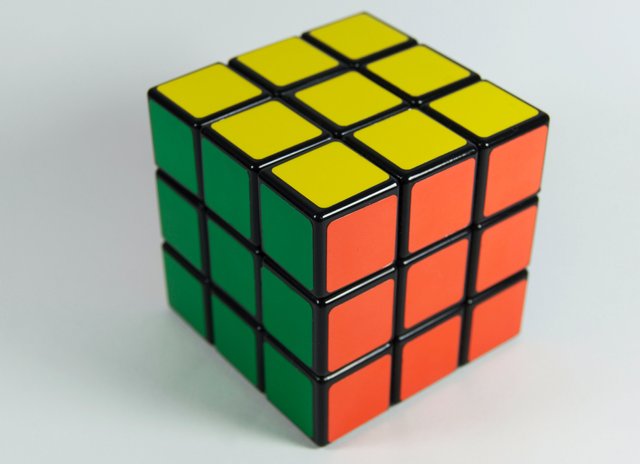
Is IQ (Intelligence Quotient) an accurate measure of a person's cognitive ability or intelligence in problem-solving, abstract thinking, quick learning, and adapting to new environments, or is it a discriminatory tool?
IQ is typically quantified by a score obtained from an IQ test administered to individuals. However, it is important to note that IQ alone does not solely determine an individual's success in life, as there are other factors that contribute to one's abilities.
When was the term IQ coined?
The term IQ (Intelligence Quotient) was coined in the early 20th century by French psychologist Alfred Binet. In 1904, the French government tasked Binet with creating a test to identify children in need of special educational assistance.
Together with his colleague, Theodore Simon, Binet developed the first intelligence test known as "The Binet-Simon Scale," which later served as the foundation for modern IQ tests. While Binet did not use the term "IQ" himself, it was subsequently adopted by other psychologists to reference his concept.
Following the introduction of the term IQ by Alfred Binet, IQ testing experienced rapid development and became one of the most widely used assessment tools in psychology. In 1916, Lewis Terman created the American version of the Binet-Simon test, known as the Stanford-Binet Intelligence Scale. This test gained global recognition and is still widely utilized today.
Other IQ tests, such as the Wechsler Adult Intelligence Scale (WAIS) and the Wechsler Intelligence Scale for Children (WISC), have also been developed. These modern IQ tests generally consist of various questions or tasks designed to evaluate different cognitive abilities, including verbal and nonverbal skills, memory, and information processing.
Despite the widespread use of IQ tests, they have attracted criticism and controversy. Some psychologists argue that IQ tests do not fully capture a person's intelligence and can be influenced by factors like cultural background, education, and environment. Therefore, it is crucial to consider multiple factors when assessing an individual's abilities, rather than relying solely on an IQ test.
Expert Opinion: IQ Does Not Determine Success
Numerous psychologists and social scientists emphasize that IQ alone does not determine an individual's success in life. Various other factors come into play, such as motivation, social skills, adaptability, emotional intelligence, and the social environment.
Research indicates that these factors significantly impact a person's ability to achieve goals and overcome challenges. For instance, effective communication, teamwork, and emotional management skills can contribute to success in both professional and personal realms.
In addition, environmental factors can also affect one's success. A supportive environment, such as a warm family and a good education, can help a person reach their full potential. Conversely, an unstable and unsupportive environment can hinder a person's ability to develop.
Thus, although IQ can provide an overview of a person's cognitive abilities, it cannot be seen as the main determining factor for one's success. Success is determined by a variety of factors, and it is important to consider aspects other than IQ when evaluating one's abilities.
Controversy Over the Concept of IQ
Yes, there have been several protests against the concept of IQ throughout its history. One of the main criticisms of the concept of IQ is that this measurement can be influenced by factors such as cultural background, education, and environment. Some minority groups and indigenous communities claim that IQ tests are based on a Western worldview and do not take into account finer aspects of intelligence or other forms of intelligence.
There are also critics who claim that IQ tests can be a tool of discrimination, emphasizing racial and ethnic differences. Historically, IQ tests have often been used to justify discriminatory policies, such as racial segregation and forced sterilization. Some groups have protested the use of IQ tests as a means to reinforce preconceived notions about the intelligence of certain groups.
Additionally, there have been criticisms of using IQ tests as the sole measure of a person's intelligence and potential. Critics argue that such a narrow concept of intelligence does not take into account other important aspects, such as emotional and social intelligence, which can play a significant role in a person's success in life.
Despite protests and criticism of the concept of IQ, IQ tests are still widely used in psychology and education. However, psychologists are constantly updating IQ tests and seeking ways to make them more objective and fair.
Why Do IQ Tests Still Exist?
IQ tests still exist today because they are considered a useful tool in understanding a person's cognitive abilities. Although IQ tests have weaknesses and face criticisms, experts still utilize them for various purposes, such as identifying developmental problems in children, evaluating academic abilities, and identifying special educational needs.
Moreover, IQ tests are employed in scientific research to study the relationship between intelligence and various factors, including genetics, environment, and education. These tests can help measure changes in cognitive abilities over time and aid in identifying factors that can influence a person's cognitive development.
Despite the drawbacks and criticisms associated with IQ tests, experts are constantly striving to improve their accuracy and objectivity. One approach is to employ more complex and diverse tests, and to combine cognitive measurements with assessments of emotional and social intelligence.
In conclusion, despite the criticisms and weaknesses associated with IQ tests, they remain a valuable tool in understanding a person's cognitive abilities. Psychologists and educators continue to use them, while also working on enhancing their accuracy and objectivity.
Referensi:
- Sternberg, R. J., & Kaufman, S. B. (Eds.). (2018). The Cambridge Handbook of Intelligence. Cambridge University Press.
- Nisbett, R. E., Aronson, J., Blair, C., Dickens, W., Flynn, J., Halpern, D. F., & Turkheimer, E. (2012). Intelligence: new findings and theoretical developments. American Psychologist, 67(2), 130–159.
- Gould, S. J. (1996). The Mismeasure of Man. W. W. Norton & Company.
- Flynn, J. R. (2009). What is intelligence? Beyond the Flynn effect. Cambridge University Press.
- Sternberg, R. J. (2018). The theory of successful intelligence. Cambridge University Press.